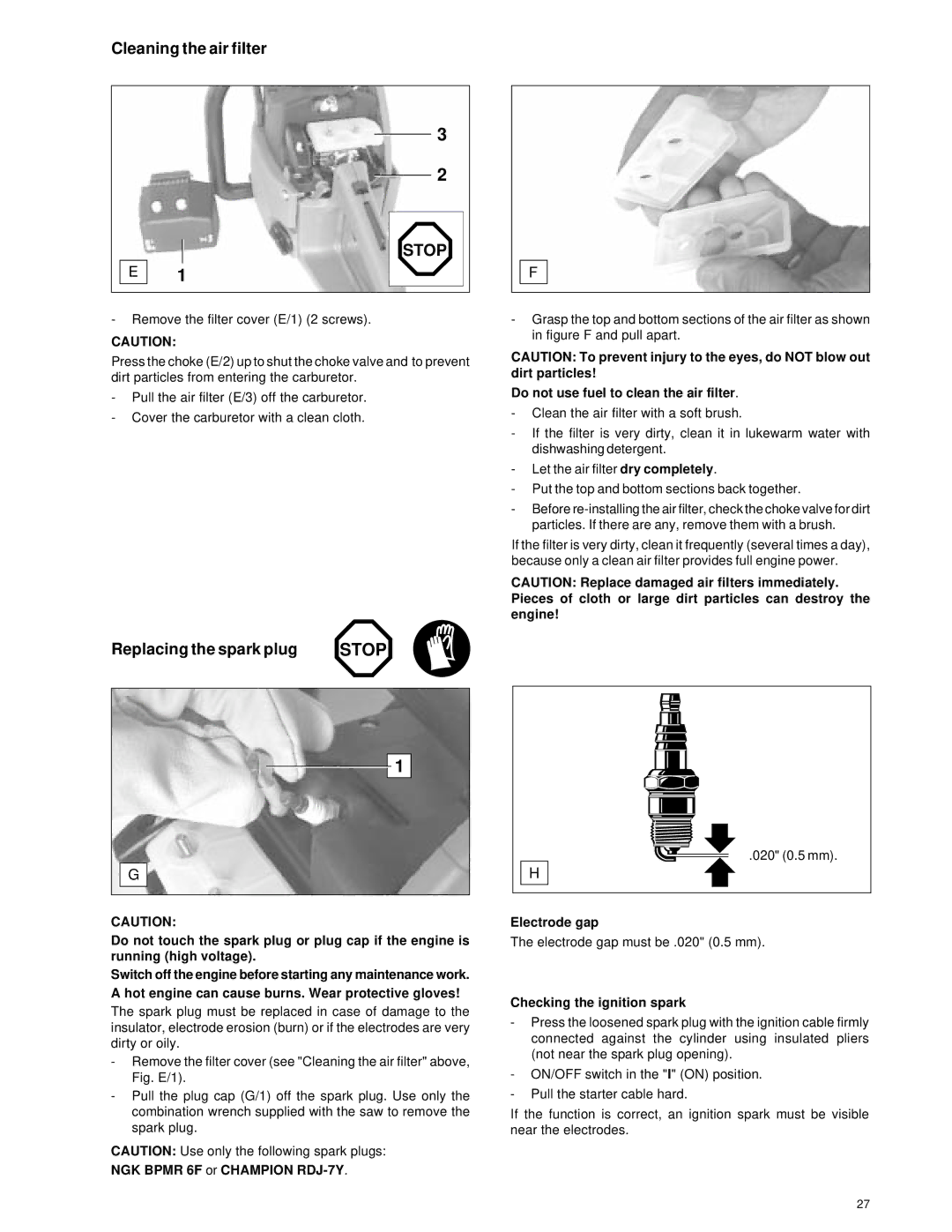
Cleaning the air filter
3
2
STOP
E1
-Remove the filter cover (E/1) (2 screws).
CAUTION:
Press the choke (E/2) up to shut the choke valve and to prevent dirt particles from entering the carburetor.
-Pull the air filter (E/3) off the carburetor.
-Cover the carburetor with a clean cloth.
Replacing the spark plug | STOP |
1
G
CAUTION:
Do not touch the spark plug or plug cap if the engine is running (high voltage).
Switch off the engine before starting any maintenance work. A hot engine can cause burns. Wear protective gloves!
The spark plug must be replaced in case of damage to the insulator, electrode erosion (burn) or if the electrodes are very dirty or oily.
-Remove the filter cover (see "Cleaning the air filter" above, Fig. E/1).
-Pull the plug cap (G/1) off the spark plug. Use only the combination wrench supplied with the saw to remove the spark plug.
CAUTION: Use only the following spark plugs:
NGK BPMR 6F or CHAMPION
F
-Grasp the top and bottom sections of the air filter as shown in figure F and pull apart.
CAUTION: To prevent injury to the eyes, do NOT blow out dirt particles!
Do not use fuel to clean the air filter.
-Clean the air filter with a soft brush.
-If the filter is very dirty, clean it in lukewarm water with dishwashing detergent.
-Let the air filter dry completely.
-Put the top and bottom sections back together.
-Before
If the filter is very dirty, clean it frequently (several times a day), because only a clean air filter provides full engine power.
CAUTION: Replace damaged air filters immediately. Pieces of cloth or large dirt particles can destroy the engine!
.020" (0.5 mm).
H
Electrode gap
The electrode gap must be .020" (0.5 mm).
Checking the ignition spark
-Press the loosened spark plug with the ignition cable firmly connected against the cylinder using insulated pliers (not near the spark plug opening).
-ON/OFF switch in the "I" (ON) position.
-Pull the starter cable hard.
If the function is correct, an ignition spark must be visible near the electrodes.
27
